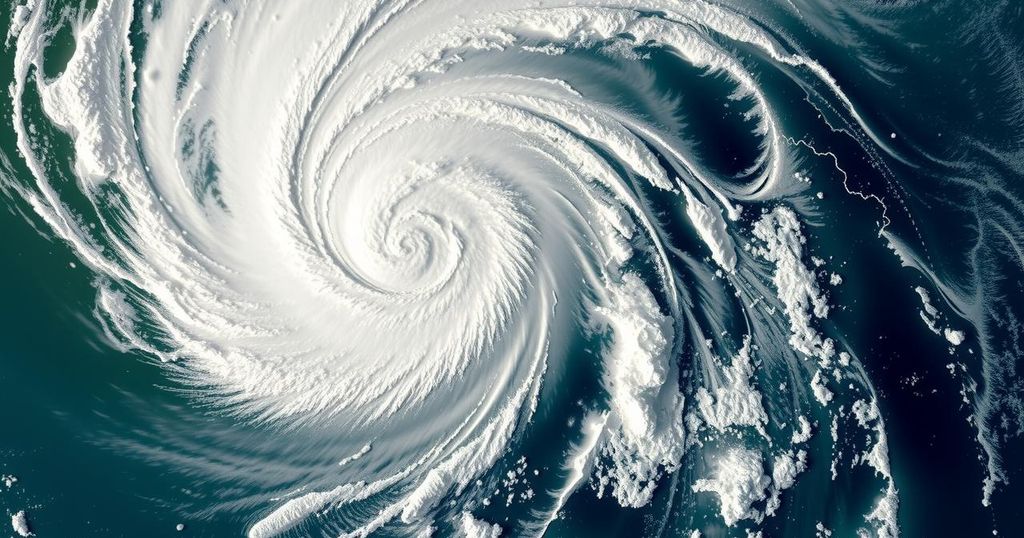Mozambique Tropical Cyclone Chido: Emergency Response and Impact Assessment
Tropical Cyclone Chido struck Cabo Delgado, Mozambique, on December 15, 2023, bringing winds of up to 250 km/h and heavy rainfall. The cyclone affected approximately 2.5 million people, with severe impacts reported in both Cabo Delgado and Nampula Provinces. Emergency responses are underway, and a needs assessment will follow to evaluate the extent of the damage and facilitate recovery efforts.
On December 15, 2023, Tropical Cyclone Chido made landfall in Mozambique, striking Cabo Delgado Province near Pemba as a very intense Category 4 cyclone. With sustained winds of 200 km/h and gusts reaching 250 km/h, the storm began unleashing destructive weather around 3 am local time. Preliminary forecasts indicated potential rainfall of up to 250mm within 24 hours and wind gusts up to 260 km/h impacting various districts in Cabo Delgado and Nampula Province.
While the full extent of the damage is still being assessed, substantial destruction is anticipated due to the cyclone’s intensity and the resulting heavy rains that could lead to significant flooding and landslides. All coastal regions within the storm’s trajectory are at risk of storm surges, while inland areas may also experience flooding. As a result of the cyclone, the mobile networks in Pemba have been disrupted, although some areas still retain electricity.
The Mozambique Red Cross Society (CVM) has submitted a DREF application to mobilize response efforts in the most severely affected regions based on the information currently available. It is estimated that approximately 2.5 million individuals may have been impacted by Cyclone Chido. Key districts affected include: 1.5 million in Cabo Delgado, particularly in Ancuabe, Pemba, and surrounding areas; 730,000 people in Nampula, in districts such as Memba and Nacala; and 215,000 in Niassa, including Cuamba and Marrupa amongst others. An updated assessment of needs and the CVM’s response plan will be released shortly.
Tropical Cyclone Chido is part of a series of severe weather events that have recently impacted Mozambique, a nation that experiences seasonal cyclones due to its geographical location. Cabo Delgado and Nampula are among the most vulnerable provinces, often subject to extreme weather. The damage wrought by cyclones often results in severe humanitarian crises, as communities struggle to recover from both immediate impacts like flooding and long-term effects on infrastructure and livelihoods. Monitoring these events closely is crucial for effective disaster response.
In conclusion, Tropical Cyclone Chido has brought significant destruction to northern Mozambique, affecting millions and prompting emergency responses by local authorities and humanitarian organizations. The immediate focus remains on assessing the damage and providing aid to the most affected areas while highlighting the need for better preparedness for future cyclonic events. Continued monitoring and evaluation will be essential to address the ongoing challenges faced by the impacted communities.
Original Source: reliefweb.int




Post Comment